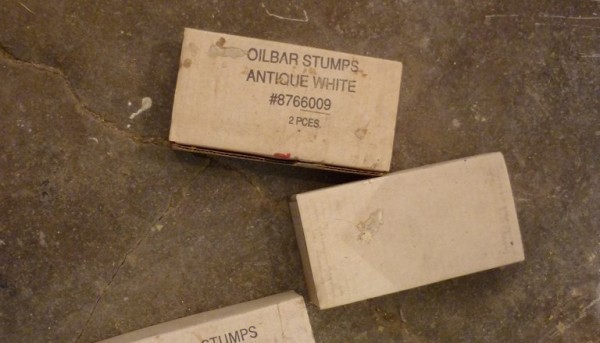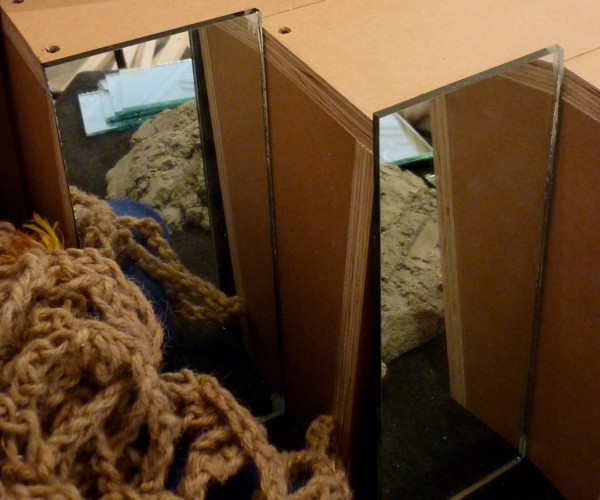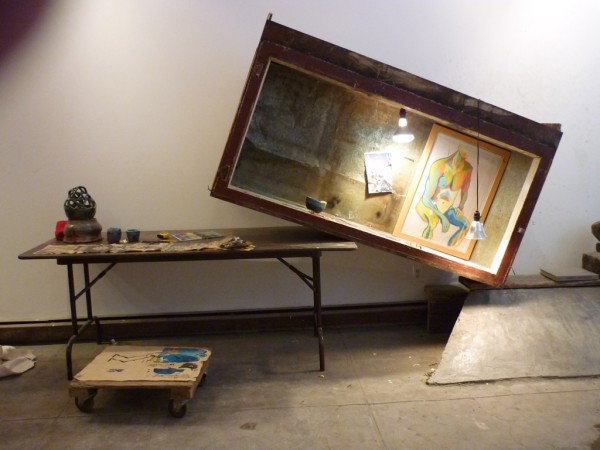-
Spring time: Recess with Scott Keightley
by Idiom February 8, 2011

Late last week Stephen Squibb sent some questions to Scott Keightley. Scott had an opening at Recess. When he got back, he sent answers.
Idiom: How does the show at Recess relate to your previous work?
Scott Keightley: That’s a hard question. I am embarrassed by a lot of my previous work, but I love some of it, and I’ve learned from all of it. I don’t know the answer to this question.
Idiom: Can you talk about the interaction between social practice and object production in your work? Why build a sculpture next to a skate ramp?
SK: Skateboarders are the most innovative artists of my generation. In this way, the ramp itself is a sculpture. I think your eyes are like a catapult for your heart, and skateboarders embody this idea. Also now that I’ve pulled it out of the wall it looks like a Robert Smithson, only it’s better because you can skateboard on it.
Idiom: What were the communities and identities that informed your sense of self as you grew up? Which of these inform your work today?
SK: I have always felt like an outsider. A willingness to get weird and be honest about stuff is what I have always valued and continue to value. That and a healthy capacity for fantasy, which is a veil but a very beautiful and important veil and also a mirror and a window.

Idiom: Talk about Waltham, ‘America’s first industrial city.’
SK: Under the Reagan administration a lot of mental institutions in Waltham were shut down and residents were thrown into the street. Now there is a really high population of crazy homeless people in Waltham. I always liked to explore the abandoned train tracks and factories and old bridges along the Charles. In the Spring time it is very beautiful there.
Idiom: How would you define ‘natual,’ or ‘organic,’? How do we know? Or is it not about knowing?
SK: The words ‘natural’ and ‘organic’ were both used in the press release for this residency. Those were not actually my words, but I think they are totally relevant conceptually. The whole show is kind of about pollution and embracing it.

Idiom: Is the artist responsible for making a kind of social commitment?
SK: Well, I don’t know exactly what kind of social commitment you mean, but I’d say that social responsibility is important in general, and that by making art we benefit society at large. Artists are only people, although their work is sometimes extra-ordinary given the nature of art. In many ways art has to go through the artist, and being a good artist means being open to that. We should be like the antennae of society and culture, always feeling forward in the dark.
Idiom: Do you feel repressed or emancipated by the title of artist? Would you prefer something else? What would it be, if it was how everybody spoke about what you do, and it could be anything at all?
SK: Emancipated.
Updated 2/9


1 Comment
Recess » Scott Keightley on Walthum, skateboarders, and Session
[...] Scott answered some questions from Idiom’s Stephen Squibb. Read the interview after the jumpRead their exchange over at Idiom’s website. [...]